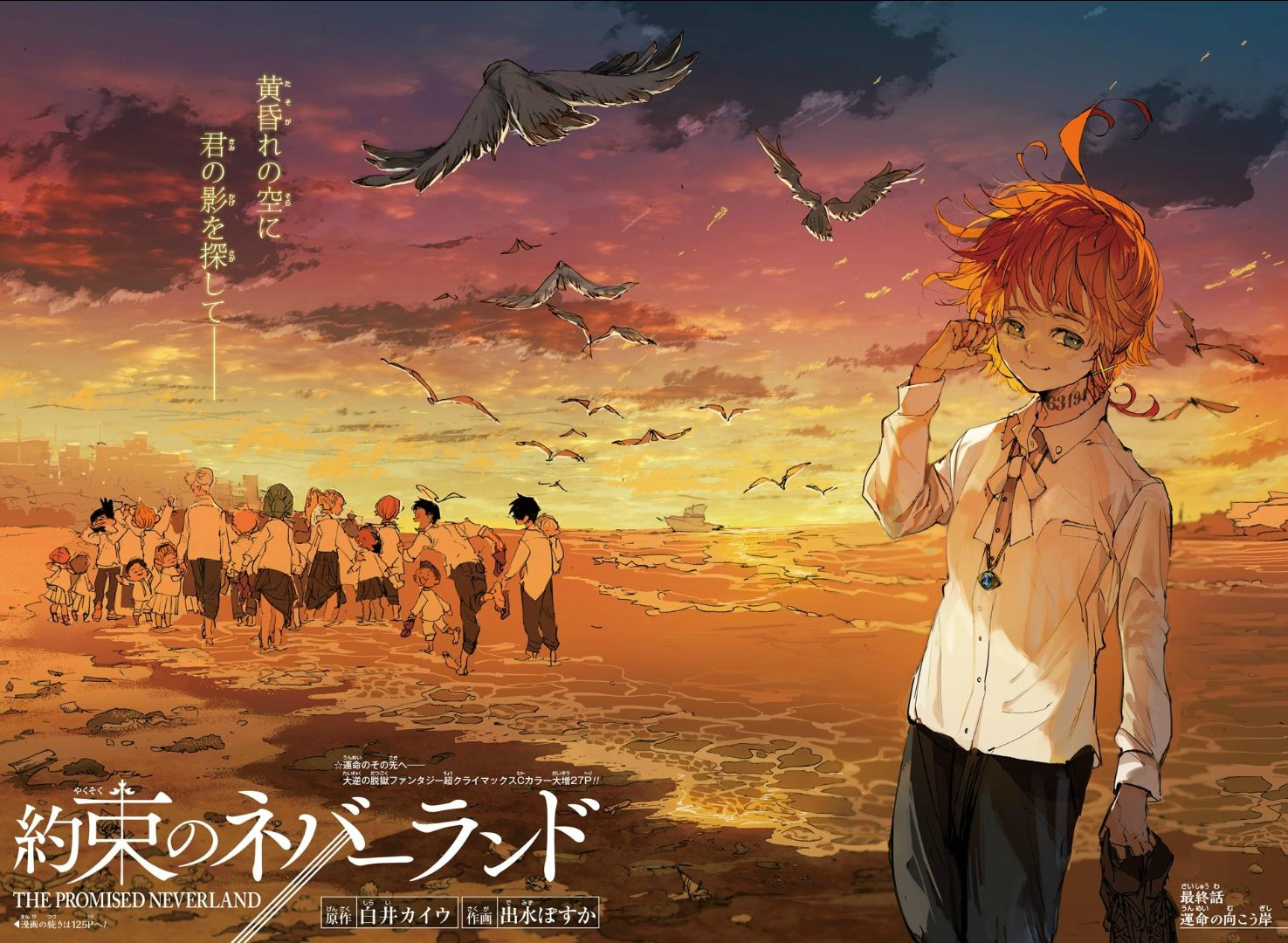

For example, in the second major arc of the story, Emma-who at that point is already averse to all loss of life-needs to pick a weapon for herself, but Ray suddenly picks one for her. Thankfully, in *every single one* of those situations she suffers no long-term consequences and never actually *has* to make those morally ambiguous choices herself because others are eager to do it for her. What makes this walking pile of cliche much worse, however, is that she is constantly put in charge of decisions based chiefly on her optimism, and this leads to situations where she is (or, by extension, her followers are) put in unnecessary danger or required to make some morally ambiguous choices. She's an overly optimistic Mary Sue with an unshakable conviction and a resilient physique, a set of traits typical of a better half of Jump protagonists of the last three decades at least. But the way she's written into the story makes the whole thing a farce. She is very one-note but could potentially work in a supporting role, considering both Normal and Ray are deeper, more relatable characters with some inner conflict that could work as a premise for a proper character arc.

Her goals are lofty but ultimately agreeable. And if I were to identify every little bit that went wrong, you'd probably be reading this all day, so I'll just call out the most glaring, deal-breaking issues.ĬORE PROBLEM #1: Emma is far too sterile to be a protagonist.ĭon't get me wrong, Emma is not a bad *character* in principle. Each and every time the plot itself would stretch a helping hand for the author to make a turnaround, they would high-five it and plunge deeper down the abyss of mediocrity. It was the first manga in many years that took relatively normal characters-without any sort of superpowers or the like-and put them in a relatively realistic setting where actions have intentions, words have meaning, and decisions have consequences.Īnd then it just. And more than that, it was a story that really wanted itself to be taken seriously. Not perfect by any means-but damn impressive nonetheless. Wow, what's not to like?Īll of this, combined with Urasawa-esque cliffhangers, made the first arc of TPN one of the tightest pieces of writing to come out in Weekly Jump this entire decade. And not just that-right from the beginning TPN had established a gripping conflict with clear stakes, believable balance of power, and an awesome antagonist. For all the good reasons, too: it was, at the time, a competently done psychological thriller, something that Weekly Shonen Jump typically didn't feature, which immediately made it stand outįrom the endless conveyor of action and sports series, low-brow comedies, and various mixtures thereof. TPN became an object of hot discussion among the manga-reading crowd already after the first few chapters. (I'm sorry I couldn't LAND this joke better.) It is really a twist of cruel irony that The Promised Neverland has lived up to its name in a way I did not expect it to: it continually PROMISED a clever, poignant story but NEVER followed it through. Skip to the last two paragraphs for the summary.


 0 kommentar(er)
0 kommentar(er)
